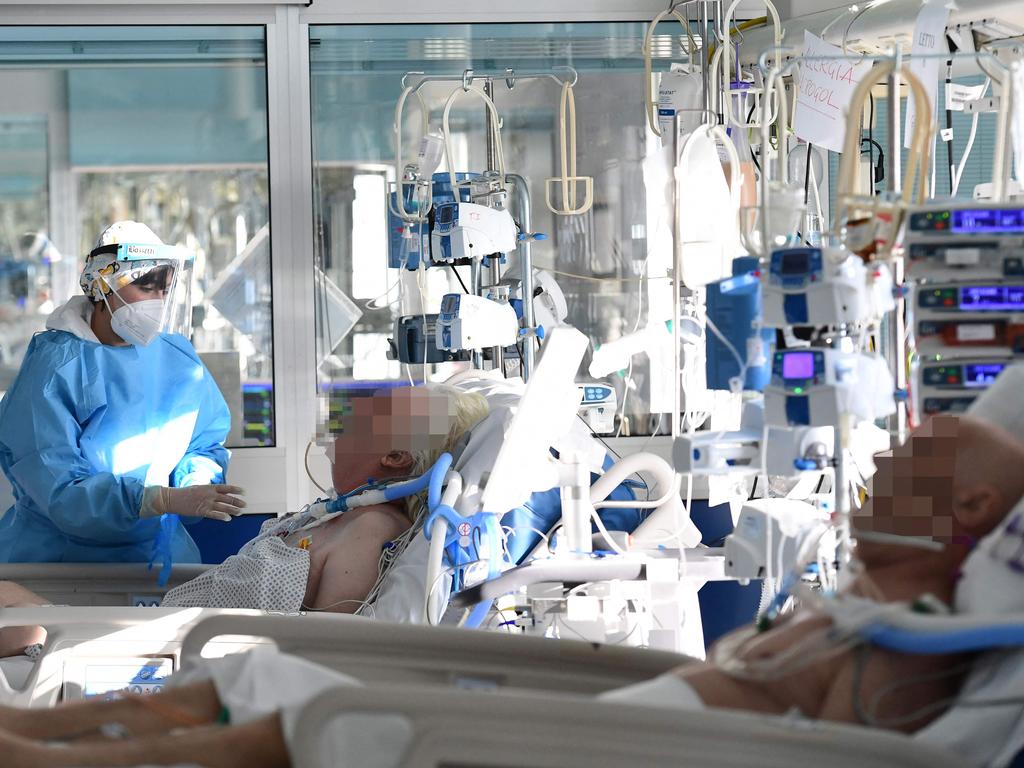Medicare Heart Health Check facing funding freeze ahead of election
For six years the Medicare Heart Health Check has been the only diagnostic test for heart disease risk; by June it will run out of funding without government intervention.

The nation’s only diagnostic heart health check-up program faces an uncertain future, with no commitment from either side of government to fund it or provide permanent support.
In 2019, the Medicare Heart Health Check was listed to the Medicare Benefits Schedule, a listing of the Medicare services subsidised by the federal government. It provides prognoses on heart disease, which remains the nation’s leading cause of death.
It has since administered 800,000 checks through GPs, rising in popularity over time with half those tests handled in the past two years. Despite this, it has no guarantee of continuing, with federal funding set to expire on June 30 and neither major party guaranteeing they will carry it into the 48th parliament.
Leading heart disease charity the Heart Foundation is lobbying Canberra for a permanent commitment to the scheme.
A spokesperson for Health Minister Mark Butler said the Albanese government “strongly backs the Heart Health Check” and was considering an extension of the program as a part of its 2025 budget.
It is a 20-minute GP check-up to predict heart attack and stroke risk over the next five years. Its Medicare subsidy covers $82.90, a cost for which patients would otherwise foot the bill.
Those aged over 45 and First Nations Australians over 30 are advised to seek testing.
Heart attack survivor Rowena Newman took the government to task over its radio silence on the screening program. She was caught by surprise when she was hit by a sudden heart attack and arrhythmia five years ago. “I was quite diligent with check-ups, and when I started having some symptoms I attributed that all to perimenopause,” the mother-of-two said. “I went to bed one night feeling not great, but no cause to worry. When I woke up at three o’clock in the morning a massive alarm was going off in my head that something catastrophic was happening.

“I yelled out for my daughter to call an ambulance … she was 11 at the time and it was 3am.
“I had eight minutes of CPR, and then I was transported to (Royal Prince Alfred Hospital) in Sydney. When I got to RPA … I had two more cardiac arrests, and when they were investigating what was causing those, they found that I had an 80 per cent blockage of my right coronary artery, so I had a stent put in.
“I was a heart attack waiting to happen.”
Her identical twin Judith rushed to get tested for heart disease in the aftermath, finding she had coronary artery disease. Ms Newman said it was a clear indication in favour of the program.
“Australians need to understand that they’re more likely to die from cardiovascular disease than from all of the cancers combined,” Ms Newman, 51, said.
“We’re in the middle of a cost-of-living crisis, and so I think that removing the funding for this would mean that lots of people would feel they couldn’t afford to go and get this screening done.
“After I had the episode, everyone I know went to get their hearts checked. I think the sense was that if it could happen to me, it could happen to anybody.”
The Medicare item received two years worth of additional funding in 2023. The Heart Foundation estimates wider uptake of the program over the next five years would deliver $1.18bn in healthcare savings and prevent 67,000 heart attacks, strokes and heart-disease related deaths.
Heart Foundation Senior Healthcare Programs Manager Natalie Raffoul said it was counter-productive to hold off on funding for preventive health initiatives that save the government millions in reduced costs on hospitals.
“It really doesn’t make sense to remove it (from the MBS) for so many different reasons,” she said.
“A bed in the coronary care unit in a standard public hospital in Australia costs thousands of dollars a day. So you know, $82.90 for a 20 minute check-up is a no-brainer.
“Almost every other sort of cancer and other chronic condition has a screening program in place. But in Australia, we wait for people to show up to the hospital with a heart attack before we do much about it.”
The Australian Medical Association argued discrete programs such as the heart check served Australians worse than comprehensive services through a GP.
“Disease-specific MBS items, like the heart health check item, do not align with the provision of comprehensive GP care. We need to recognise that many patients seeking care for cardiovascular disease will suffer from other chronic diseases as well,” AMA chief Danielle McMullen said.
“While we are not (supporting) the expiration of these items, it is essential that any derived savings are retained and reinvested.”Opposition health spokesperson Anne Ruston said the Coalition would “announce (its) full suite of health policies in due course”.
“The Coalition introduced these Medicare heart health checks to ensure that Australians at risk of heart disease have access to affordable preventive healthcare,” she said.
“We know (it) is so important right now in the middle of a cost-of-living crisis and at a time when our hospitals are overrun.”





To join the conversation, please log in. Don't have an account? Register
Join the conversation, you are commenting as Logout